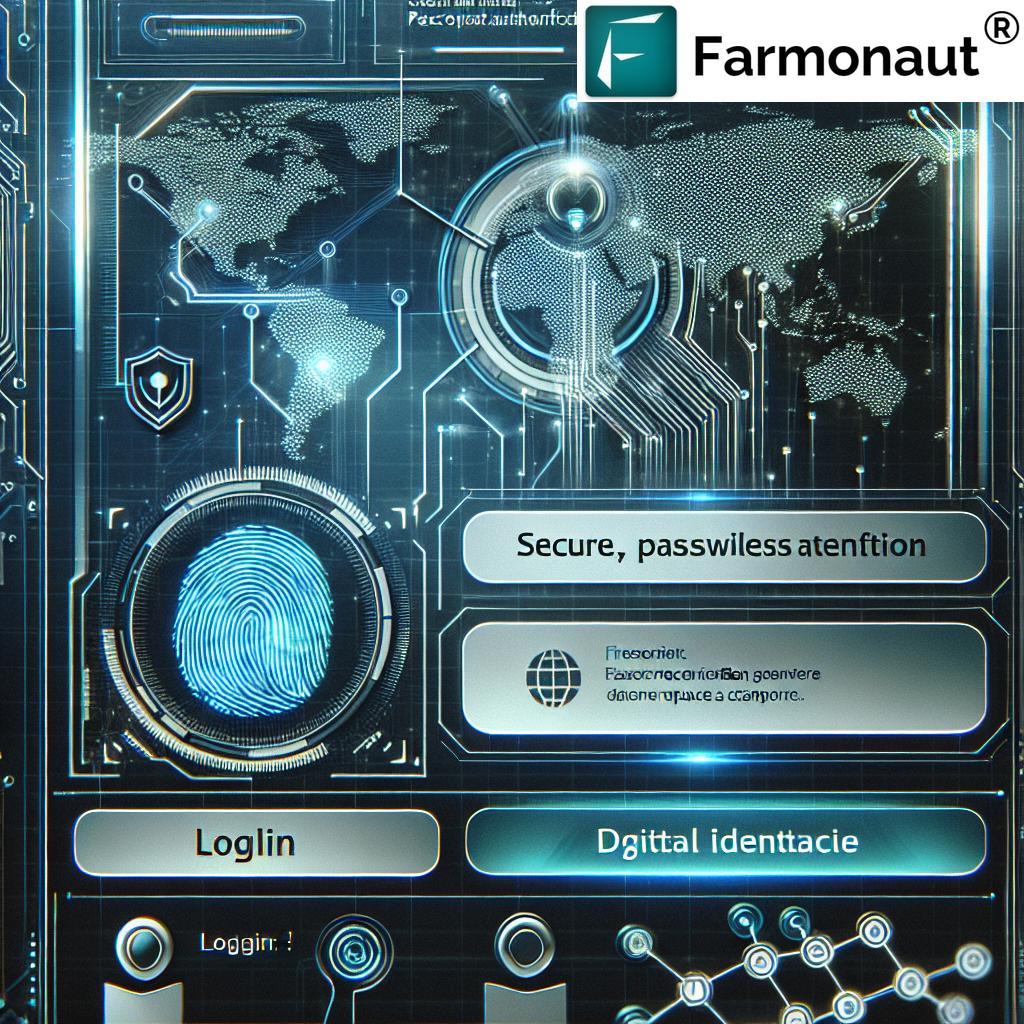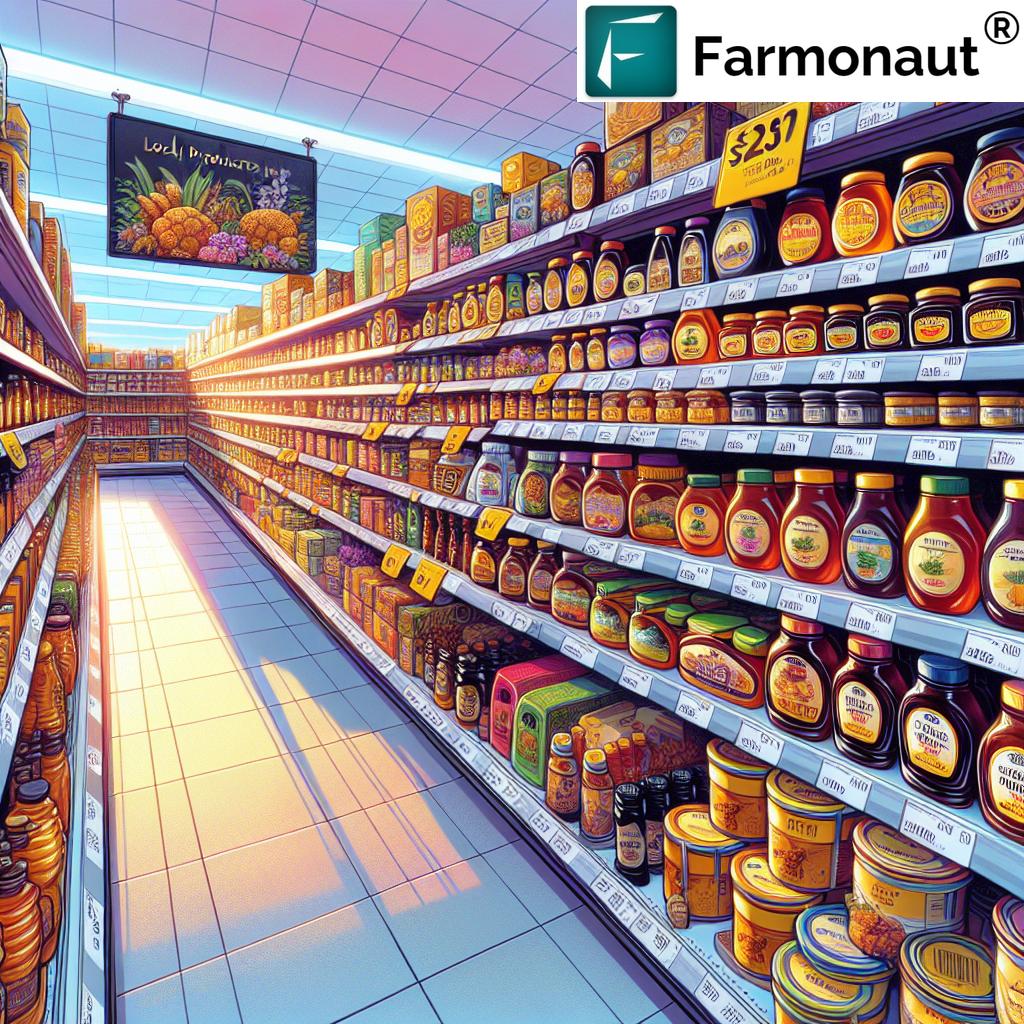Revolutionizing Adelaide’s Retail and Dining: How Unified Commerce Platforms Fuel Growth and Customer Loyalty
“An Adelaide retailer reduced inventory holding by 27% through unified commerce platform integration.”
In the heart of Adelaide, a remarkable transformation is taking place in the retail and dining landscape. We’re witnessing the dawn of a new era where technology and innovation are reshaping how businesses operate and customers experience shopping and dining. At the forefront of this revolution is the concept of unified commerce platforms, which are proving to be game-changers for businesses looking to thrive in today’s competitive market.
In this comprehensive exploration, we’ll delve into how an Italian retail and dining establishment in Adelaide is leveraging a unified commerce platform to revolutionize its operations, enhance customer experiences, and fuel unprecedented growth. This case study not only showcases the power of integrated technology but also provides valuable insights for businesses across Australia and beyond.
The Rise of Unified Commerce in Adelaide
Adelaide, known for its vibrant food and wine scene, is now becoming a hotbed for retail innovation. The integration of unified commerce platforms is transforming how local businesses operate, particularly in the retail and dining sectors. These platforms are breaking down the barriers between physical stores, online channels, and dining experiences, creating a seamless ecosystem that benefits both businesses and customers.

One establishment that stands out in this transformation is Mercato, a premier Italian goods and dining venue. By adopting a unified commerce platform, Mercato has not only streamlined its operations but also set a new standard for what customers can expect from a modern retail and dining experience.
The Mercato Success Story: A Deep Dive
Mercato’s journey towards unified commerce is a testament to the power of embracing technology in traditional sectors. Let’s explore how this Italian establishment has leveraged a unified platform to overcome challenges and achieve remarkable success.
Challenges Faced by Mercato
- Outdated Systems: Prior to the implementation of their new platform, Mercato struggled with standalone systems that couldn’t keep up with the complex demands of merging retail and café operations.
- Inventory Mismanagement: The lack of real-time synchronization led to frequent stock discrepancies and inefficiencies.
- Limited Reporting: Without integrated data, gaining actionable insights was a challenge, hindering strategic decision-making.
- Fragmented Customer Data: The inability to track customer behavior across different touchpoints limited personalization opportunities.
- Disjointed Operations: The café and retail segments operated independently, complicating the overall customer journey.
The Unified Commerce Solution
To address these challenges, Mercato partnered with Oracle NetSuite and Zoku to implement a unified commerce platform. This strategic move has resulted in:
- Integrated Channels: Seamless integration of retail store, café, and online sales channels.
- Real-time Inventory Sync: Accurate, up-to-the-minute stock levels across all sales channels.
- Enhanced Customer Experience: A consistent and personalized experience whether shopping in-store, online, or dining in.
- Operational Efficiency: Streamlined processes leading to significant cost savings and improved productivity.
“The Italian retail and dining establishment’s expansion includes a new location in North Adelaide, enhancing its retailtainment concept.”
The Power of Retailtainment: Merging Shopping and Dining
Mercato’s success story is not just about technology; it’s about reimagining the retail and dining experience. The concept of “retailtainment” – blending shopping with entertainment and dining – is at the core of their business model. This innovative approach is set to expand with a new location opening in North Adelaide, showcasing how unified commerce can support business growth and expansion.
Key Features of Mercato’s Retailtainment Concept:
- Immersive Shopping: Customers can browse Italian goods while enjoying authentic cuisine.
- Interactive Experiences: Wine tastings, cooking demonstrations, and cultural events enhance the shopping experience.
- Seamless Transitions: The unified platform allows customers to move effortlessly between shopping and dining.
- Personalized Recommendations: Data from both retail and dining interactions inform tailored suggestions.

Tangible Results: The Impact of Unified Commerce
The implementation of a unified commerce platform has yielded impressive results for Mercato:
- 27% Reduction in Inventory Holding: Improved inventory management has led to significant cost savings and reduced waste.
- Increased Wine Sales: The ability to offer personalized recommendations has boosted wine sales, particularly by the glass.
- Enhanced Customer Loyalty: Integrated data across touchpoints has allowed for more effective loyalty programs and personalized marketing.
- Operational Streamlining: Unified systems have reduced manual work and improved accuracy in reporting and forecasting.
The Technology Behind the Transformation
At the heart of Mercato’s transformation is the integration of Oracle NetSuite and Zoku. This powerful combination provides:
- Cloud-based Infrastructure: Ensuring real-time data access and scalability.
- Integrated POS Systems: Seamless transactions across retail and dining operations.
- Advanced Analytics: Deep insights into customer behavior and business performance.
- Inventory Management Solutions: Precise stock control and forecasting capabilities.
- Customer Relationship Management (CRM): Unified customer profiles for personalized experiences.
The Role of Zoku in Mercato’s Success
Zoku, a specialist in integrating commerce software, has played a crucial role in tailoring the unified platform to Mercato’s unique needs. Their expertise in retail, eCommerce, wholesale distribution, and food & beverage markets has enabled Mercato to:
- Optimize operational workflows
- Enhance customer experience across all touchpoints
- Integrate complex retail and dining operations seamlessly
- Scale their business model for future growth
The Future of Retail and Dining in Adelaide
Mercato’s success story is just the beginning. As more businesses in Adelaide and across Australia recognize the potential of unified commerce platforms, we can expect to see:
- Increased Adoption of Integrated Technologies: More retailers and dining establishments will embrace unified platforms to stay competitive.
- Evolution of Customer Experiences: Personalization and seamless interactions will become the norm rather than the exception.
- Data-Driven Decision Making: Businesses will leverage integrated data for more strategic planning and operations.
- Expansion of the Retailtainment Concept: The blending of shopping, dining, and entertainment will continue to evolve and expand.
Lessons for Other Businesses
Mercato’s journey offers valuable lessons for other businesses considering a move to unified commerce:
- Embrace Technology: Don’t be afraid to invest in advanced systems that can transform your operations.
- Focus on Integration: Look for solutions that bring together all aspects of your business, from sales to inventory to customer data.
- Prioritize Customer Experience: Use technology to enhance, not complicate, the customer journey.
- Be Data-Driven: Leverage the insights provided by unified platforms to make informed decisions.
- Plan for Scalability: Choose systems that can grow with your business and support future expansion.
The Role of Unified Commerce in Customer Loyalty
One of the most significant benefits of unified commerce platforms is their ability to foster customer loyalty. By providing a seamless and personalized experience across all touchpoints, businesses like Mercato can:
- Create Consistent Experiences: Customers receive the same high-quality service whether they’re shopping in-store, online, or dining in.
- Offer Personalized Recommendations: Integrated data allows for tailored product suggestions and promotions.
- Implement Effective Loyalty Programs: Points and rewards can be earned and redeemed across all channels effortlessly.
- Provide Omnichannel Customer Service: Issues can be resolved quickly with access to complete customer history.
Overcoming Implementation Challenges
While the benefits of unified commerce are clear, implementing such systems can come with challenges. Here’s how businesses can navigate the transition:
- Staff Training: Invest in comprehensive training programs to ensure all employees can effectively use the new systems.
- Data Migration: Plan carefully for the transfer of existing data to the new platform to avoid disruptions.
- Change Management: Communicate the benefits of the new system to all stakeholders to encourage adoption.
- Phased Implementation: Consider a gradual rollout to minimize disruption to daily operations.
- Ongoing Support: Partner with technology providers that offer robust support and regular updates.
The Impact on Inventory Management
One of the most striking improvements Mercato experienced was in inventory management. The 27% reduction in inventory holding is a testament to the power of unified commerce platforms in optimizing stock levels. Here’s how it works:
- Real-Time Visibility: Accurate, up-to-the-minute stock levels across all sales channels.
- Demand Forecasting: Advanced analytics predict future demand, reducing overstocking and stockouts.
- Automated Reordering: Systems can automatically place orders when stock reaches predefined levels.
- Cross-Channel Inventory: Ability to fulfill online orders from store stock and vice versa.
- Reduced Waste: Better management of perishable goods in both retail and dining operations.
Enhancing the Online Experience
While Mercato’s physical locations are at the heart of its business, the unified commerce platform has also significantly improved its online presence. Here’s how:
- Seamless Online-Offline Integration: Customers can easily move between online and in-store experiences.
- Click-and-Collect Options: Order online and pick up in-store, bridging the digital and physical realms.
- Real-Time Product Availability: Online customers can see accurate stock levels for both delivery and in-store pickup.
- Personalized Online Experiences: Tailored product recommendations based on both online and in-store behavior.
- Unified Customer Profiles: Customer data from all channels informs marketing and service strategies.
The Future of Unified Commerce
As we look to the future, the potential for unified commerce platforms continues to expand. Here are some trends we expect to see:
- AI and Machine Learning Integration: More sophisticated predictive analytics and personalization.
- IoT and Smart Retail: Integration of smart devices for even more seamless experiences.
- Augmented Reality (AR) Shopping: Virtual try-ons and product visualizations in both online and in-store environments.
- Voice Commerce: Integration of voice-activated shopping and service options.
- Blockchain for Transparency: Enhanced traceability for product sourcing and authenticity.
Conclusion: The Path Forward for Adelaide’s Retail and Dining Scene
The success of Mercato in revolutionizing its retail and dining operations through a unified commerce platform serves as a powerful example for businesses across Adelaide and beyond. By embracing technology and innovation, companies can not only streamline their operations but also create exceptional customer experiences that drive loyalty and growth.
As we move forward, the lines between shopping, dining, and entertainment will continue to blur, creating exciting opportunities for businesses that are ready to adapt. The key to success in this new landscape will be the ability to provide seamless, personalized experiences across all channels – something that unified commerce platforms are uniquely positioned to deliver.
For businesses in Adelaide and across Australia, the message is clear: the future of retail and dining lies in integration, personalization, and innovation. By following in Mercato’s footsteps and embracing unified commerce, businesses can position themselves at the forefront of this retail revolution, ready to meet the evolving demands of today’s consumers and thrive in an increasingly competitive market.
FAQs
- What is a unified commerce platform?
A unified commerce platform is an integrated system that combines all sales channels, inventory management, customer data, and back-office functions into a single, cohesive platform. It allows businesses to provide a seamless experience across all customer touchpoints, from in-store to online. - How does unified commerce differ from omnichannel retail?
While omnichannel retail focuses on providing a consistent experience across multiple channels, unified commerce goes a step further by integrating all channels and back-end systems into a single platform. This allows for real-time data synchronization and a truly seamless experience for both customers and businesses. - What are the main benefits of implementing a unified commerce platform?
Key benefits include improved inventory management, enhanced customer experience, increased operational efficiency, better data insights, and the ability to offer truly personalized services across all channels. - How can unified commerce improve customer loyalty?
Unified commerce platforms enable businesses to create consistent experiences, offer personalized recommendations, implement effective loyalty programs, and provide superior customer service by having access to complete customer histories across all touchpoints. - Is unified commerce suitable for small businesses?
While often associated with larger retailers, unified commerce solutions are becoming increasingly accessible to small and medium-sized businesses. Many providers offer scalable solutions that can grow with the business.
| Aspect | Traditional Approach | Unified Commerce Approach |
|---|---|---|
| Inventory Management | Manual tracking, higher holding costs | 27% reduction in inventory holding, real-time synchronization |
| Sales Channels | Separate systems for in-store and online | Integrated retail, café, and online sales |
| Customer Experience | Inconsistent across channels | Seamless and personalized across all touchpoints |
| Operational Efficiency | Siloed processes, manual data entry | Streamlined operations, automated workflows |
| Data Insights | Limited, often delayed reporting | Real-time analytics, comprehensive customer insights |
| Scalability | Challenging and costly to scale | Easily scalable for business growth and expansion |
As we conclude this exploration of unified commerce platforms and their impact on Adelaide’s retail and dining landscape, it’s clear that the future is bright for businesses willing to embrace innovation. The success story of Mercato serves as an inspiring example of how technology can transform operations, enhance customer experiences, and drive growth in today’s competitive market.
For businesses looking to stay ahead in the evolving retail and dining sectors, considering a unified commerce approach could be the key to unlocking new levels of success and customer satisfaction. As Adelaide continues to cement its position as a hub of innovation in retail and dining, we can expect to see more businesses following in Mercato’s footsteps, creating exciting new experiences for customers and setting new standards for the industry as a whole.













